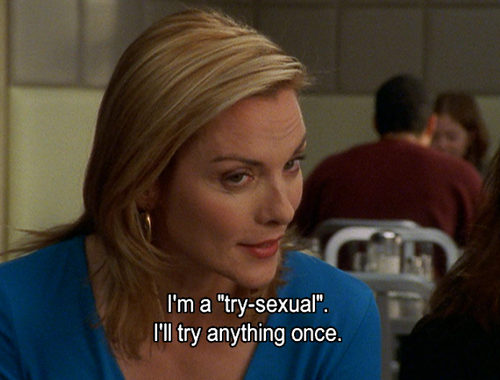
All About Love: Decolonize your heart With Lessons from Bell Hooks
We’re talking All About Love (haha) because it is quite literally one of my favorite topics. I love love. I love good, restorative, pure, healing love. Reading Bell Hook’s All About Love made me realize that our society really does not have a single clue what love is. We learn to “use the word love in such a sloppy way that it can mean almost nothing or everything.”
An Introduction to All About Love
All About Love completely changed my perspective. I reevaluated how I express care in all my relationships, whether it’s familial, romantic, divine or friendship.

All About Love explores how social systems like capitalism and patriarchy constructed and govern our ways of loving. In these times of revolution, protest and questioning of society, it’s time to decolonize your heart as you also decolonize your mind. Here are a few lessons from Bell Hook’s All About Love:
The Definition of Love
- Let’s get into this definition of love she presents from Erich Fromm:
- “The will to extend one’s self for the purpose of nurturing one’s own or another’s spiritual growth.”
I’m just gonna let y’all sit on that because whew. I prefer it much more than the current Google definition of “an intense feeling of deep affection.”
Love is more than just affection or like. You need to examine how best you can nurture and foster the well-beings of those you care about and yourself. As she says, “Care is a dimension of loving. Simply giving care does not mean we are loving.”
Isn’t that a slap in the face?? When I read that, I gasped. Truly. One of the many moments I gasped while reading All About Love.
Love is More Than Just Care
When we think about love, we tend to think about this earth shattering, mountain moving affection. We desire someone else to come and make us feel safe. Like being with them will make us whole again. Finding our desired partner for us is a search instead of way of life. Love seems like a haphazard feeling instead of an act of will. You choose to foster your own or someone else’s holistic wellbeing.
Our search for affection tends to correlate to our desires and lacks, typically stemming from childhood. This brings me to a slight segue of parental love because “love is as love does.”
Love is as love does
2. “Being hurt by parenting adults rarely alters a child’s desire to love and be loved by them.”
All About Love looks at all dimensions of love, including the family unit. For most of us, we learn how to love from those closest to us. Which brings me to the point of corporal punishment. This might sound like a stretch for many. Cue the chorus of people about to say: I got beat when I was younger and I turned out okay. Hear me out: when you beat your child, you’re teaching them that abuse can coexist with love. Most of the time your parents would say, “I’m doing this because I love you” or “I’m doing this for your own good.” This teaches you to associate abuse with care and concern.
Is Corporal Punishment the Only Way?
Moreover, especially within the Black diaspora, we need to recognize that corporal punishment stems from the legacy of enslavement. Beatings resulted from the necessity for self preservation to keep your kids in line for their own sake. Quickly learning lessons at home equated to a higher chance of survival. In a world hellbent on your destruction, minority parents still carry this concern and this method of child-rearing, particularly with the Black diaspora.
I might explore this more in a future article. I definitely wanted to mention that though because this chapter altered my perception of parenting as I know it. (Full disclosure, my parents did not beat me and I also turned out just fine ¯\_(ツ)_/¯). Again, love is as love does. Not to say we’re all going to grow up and be abusive, toxic or manipulative. However, there is something to be said about learning affection in the context of reward and punishment. Can we get to the point where those cutesy conversations on Full House are the norm? Just food for thought.
It’s All About Trust
3. It’s all about trust folx. Which sounds self explanatory but we’re often not taught to trust. Instead, we’re out here playing games. Y’all know what I’m talking about: monitoring likes on Instagram, policing where they go and with who, waiting hours to text back, sending screenshots to the group chat (okay, ngl I don’t think imma stop that one😬, sometimes the tea is too much lol), but y’all get the point. Manipulation, withholding information, and straight up lying, is how we keep our relationships afloat.
In the context of our patriarchy (and this is very cis and hetero-normative but bear with me friends): “Males learn to lie as a way of obtaining power…the message given to males is to be honest is to be soft…“This inability to connect with others carries with it an inability to assume responsibility for causing pain” (39).
Is that not a word?????

Why Do Women Lie?
On the flipside, women lie, manipulate and play games in order to shift the dynamic of power in the relationship (in a patriarchal sense) in their favor. Under a patriarchal system, relationships are really based on domination and control, and not the aforementioned definition from Erich Fromm. More specifically, it is the domination of control by the male figure in the relationship in order to get the subservience of the women (and children) involved.
In fact, Bell Hooks asserts that the concept of women lying has been codified into our society dating as far back as the idea of Adam & Eve. She claims that when women lie, we are playing into a notion of patriarchal femininity. A very interesting thought and claim. Lies possess no place in a truly loving relationship, even the little white ones. Each lie erodes that foundation of trust that supports intimacy.
On Loving Justice
Oh and I’m not done. Consider these two quotes carefully:
“Loving Justice between a man and a woman does not stand a chance when other men’s manhood matters more. When a man has decided to love manhood more than justice, there are predictable consequences in all his
relationships with women. Learning to live as a man of conscience means deciding that your loyalty to the people whom you love is always more important than whatever lingering loyalty you may sometimes feel to other men’s judgment on your manhood” (Hooks quoted from The End of Manhood by John Stoltenberg).
And this is an interesting quote👀: “When we hear another person’s thoughts, beliefs and feelings, it is more difficult to project on to them our perceptions of who they are. It is harder to be manipulative. At times women find it difficult to hear what men have to say when what they tell us does not conform to our fantasies of who they are or who we want them to be” (49)…………Go ahead and chop it up about this one in the comments👀
Men (and women) can return to and live by a love ethic when we reject the will to dominate and that includes abandoning tactics of manipulation like lying in order for trust to flourish in our relationships.
Leave the secrets out of it
4. What is the difference between privacy and secrecy? Have they become one and the same in our modern world?
We all know real G’s move in silence like lasagna BUT if your partner is not only withholding information from you but withholding your entire relationship from the world, you got to ask yourself why? Just a small note but anyone dating you should be proud to be with you. Not to say they gotta post you everywhere. In fact, they don’t have to post you at all. Maybe it’s not their thing. However, if someone asks them if they have a partner, they answer should be a resounding yes, not radio silence.
Self love is the foundation
5. Is self love really selfish?

We’re gonna unpack the less pretty side of self love another day but this is the foundation of our loving practice. Not to say if you don’t love yourself, you can’t love anyone else. But rather, the love you have within yourself or the lack thereof will influence how you express those emotions to other people and how you look to receive that care.
In Bell Hook’s more eloquent words: “Do not expect to receive the love from someone else you do not give to yourself.”
When we learn to love ourselves, we are able to reach out and express that care to other people from a place of joy and fulfillment rather than emotional lack. In fact, Hooks says, that you should just give yourself the love you desire from another person. If you want someone to look at you from a place of sexual desire and want, start looking at yourself in this way instead of expecting someone else to look at you in this way. Not to say there’ll never be a person that will do that for you because that’s simply untrue BUT instead of waiting give it to yourself now.
Give the Love you Desire from Someone else to Yourself
Take aesthetically pleasing nudes, revel in your the curves on your body when you look in the mirror, and look at yourself as the sex symbol you hope to be to someone else. What’s more, when you look at yourself and carry yourself that way, other people will follow suit. Another example, if you want someone to affirm how wonderful you are, start affirming yourself. Tell yourself you’re smart, pat yourself on the back more, appreciate your body for keeping you alive and healthy and doing it’s thing, just love on yourself as much as you would love on someone else.
Another point she makes that I resonate with is making your home a place where self love can flourish because,“When we intentionally strive to make our homes places where we are ready to give and receive love, every object we place there enhances our wellbeing” (66). Make your home/room your sanctuary and you’ll see a difference.
We are all Connected
6. Living by a love ethic means recognizing the interconnectedness of life. We all need each other. No one or no material good is more valuable than humanity.
A love ethic: “showing care, respect, knowledge, integrity, and the will to cooperate (101).”
Moreover, given the sociopolitical climate engineered by patriarchy, colonialism, racism and about a million other forms of oppression, we are taught that our security lies in our sameness and anything different is something to be feared. But love is a choice to connect to others even those with experiences that are different from our own.
The Search for Common Ground
This chapter of All About Love made me think of the search for Common Ground by Howard Thurman, which is a twofold journey based in the idea that you as a human have decided and committed to the idea that regardless of how different you may appear on the surface from someone else, you can always find yourself in other people. The search for common ground appears to also be based in a love ethic.
While capitalism teaches us our usefulness, wealth and capital equate to you our value, we need to unlearn that. You are and have always been valuable. Every life and being on this planet has a purpose and reason for being here. When we learn to recognize this and the fact that we all need each other, we can truly embrace a love ethic.
In other words: “While careers and making money remain important agendas, they never take precedence over valuing and nurturing human life and well-being” (88).
Perfection as the Will to Refine
7. Remove the idea of perfection as being without flaw and shift it to mean “the will to refine.” In that same vein, creating a perfect love does not mean creating relationships (romantic and non-romantic) where flaws and challenges are not present. After all, flaws and challenges bring the changes necessary to grow. Instead, a perfect love is one where we continue to refine, reevaluate and enable “our own or another’s emotional and spiritual growth.”
“True love is unconditional but to truly flourish it requires an ongoing commitment to construct struggle and change” (185).
Be Your Authentic Self
8. Be authentic. Loving someone is all about seeing them as they truly are and them seeing you for your authentic self. Mutual recognition is at the core of true love. Moreover, when we commit to love someone, “we are committed to being changed, to being acted upon by the beloved in a way that enables us to be more fully self actualized” (184). Don’t fear change and authenticity. These are ultimately what help us to grow. And of course, all of this works in a basis of trust, honesty, care and mutual respect.
Take the Time to Listen
9. When you love someone, you listen to them even when it hurts.
I’m centering this point around Black women and the LGBTQ+ community (particularly Black trans women because they are the most vulnerable population). When I was reading All About Love, this quote in particular struck me:
“When women communicate from a place of pain, it is often characterized as ‘nagging’ (157).
Let’s sit on that. When women communicate from a place of pain, it is often characterized as ‘nagging.’
Lately, more so than usual, the second Black women say boo, everybody got a refutation. No one listens. It’s even more hurtful when it comes from within the Black diaspora. If you truly love and support Black women, you listen, even when it hurts, even when you’re proven wrong. Love after all, is not meant to be perfect. It is a choice to refine and change in the interest of your own and another’s spiritual and emotional growth. Which brings me to my last point.
A Loving Ethic for the Foundation of Revolutionary Change
10. Love is political. Part of All About Love discusses and emphasizes the fact that there is a place for love in our social movements. If we truly want to seek a revolutionary change away from the current systems of oppression that define and rule our society, we need to be ruled and guided by a love ethic and that includes how we mobilize and how we protest.
If a love ethic guided your movement, you would not be able to exclude anyone from the equitable society you envision. There is no place for domination or hierarchy.
Living by a love ethic means recognizing the inherent value in every person, regardless of how different they are from you. Recognizing that we are all connected and we all need each other. Contrary to what capitalism wants us to believe.
Relearn and Reevaluate What You’ve Been Taught All About Love
Throughout our lives, we’re often taught that love cannot be defined. Sure, we each can create our own ideas and notions of love and how we would like to be loved. However, I appreciate All About Love for giving me a logical definition of love. Moreover, our society has no idea how to define or even deal with the transformative power of love. Society wrongly teaches us to “believe that torment and anguish are our ‘natural condition'”. Quite honestly, that’s a function of all the systems of oppression that currently construct our lives as we know it. But don’t let that cynicism get the best of you. Cynicism is one of the biggest barriers to establishing and living in a loving practice.
Unlearning and Learning All About Love
But don’t get it twisted, this doesn’t mean it’s all happiness and fairytales. Sometimes, we’ll get hurt, and other times, we’ll hurt other people. At the end of the day, “Love helps us face betrayal without losing heart. And it renews our spirit so we can love again” (237). Society failed us in our education on love. When we recognize this and reevaluate, we can strengthen our relationships both externally and internally.
Love is freeing, empowering, transformative and revolutionary. Don’t ever let anyone tell you that it’s not. Never let anyone shame your way of loving or your desire to receive love either.

Thank you all for reading! Don’t forget to share this article (and tag @tipsfromyourgoodsis on Instagram or @yourgoodsis on Twitter) and comment below your thoughts! Also, if there’s any confusion on any points or terms used in this article, let me know. Send me an email or post a comment below!




5 Comments
Moriah
Wow literally said it better than Bell Hooks herself. I’m so glad you resisted the gender binary that the author was speaking from and specifically centered Black Trans Women and Queer folks. Love is racidal!! If we approached revolution with love there would be no room for exclusion. Thank you for thissss
Solange_Hackshaw
I’m glad you felt that way!! I really didn’t want my bias as a straight women to exclude anyone so I tried hard to communicate in gender neutral terms. Also, in the future if I ever fall short of that mark, definitely let me know how I can be better. Gender and sexuality is such a wide spectrum and I don’t want anyone to feel excluded.
Pingback:
Pingback:
Pingback: